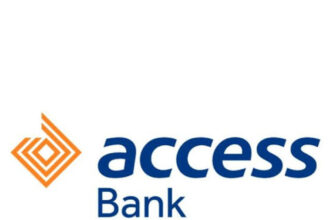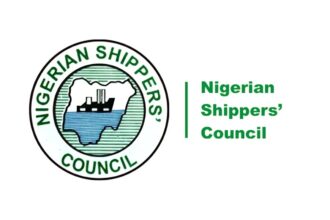The Nigerian Shippers Council is set to begin the implementation of the International Cargo Tracking Note (ICTN). In this report, TOLA ADENUBI looks at why the ICTN implementation will help reduce imports of illicit drugs, arms and ammunition into Nigeria. Excerpts
IN the next few months, precisely the second quarter of this year, the International Cargo Tracking Note (ICTN) will be deployed in the nation’s seaports. It is a technology targeted at boosting trade and addressing malpractices that have existed in the ports for decades.
Spearheaded by the Nigerian Shippers’ Council (NSC) as the ports economic regulator, ICTN, is seen by many industry stakeholders as necessary to check all forms of corrupt practices at the ports through which government loses revenue to unscrupulous individuals and corporate bodies.
Apart from blocking many revenue leakages, the ICTN is expected to curb, to the barest minimum, the rise in the importation of arms and ammunition into the country.
INCREASING ARMS IMPORTS
The Nigeria Customs Service (NCS) has had to rely heavily on intelligence to stop the importations of illicit drugs, arms and ammunition into the country. The ICTN, when deployed, is expected to lessen the burden of the Nigeria Customs Service by providing real time information of cargoes before departure from ports of origin.
Recall that in early this month, the Customs handed over a total of 3,897 arms and ammunition to the National Centre for the Control of Small Arms and Light Weapons (NCCSALW) in Lagos.
Speaking during the handing over ceremony, the Comptroller-General of Customs, Adewale Adeniyi, said that a total of 1,599 arms and 2,298 ammunition were handed over.
The Customs CG explained that the seized arms and ammunition were intercepted between 2018 and 2024. Adeniyi stated that in 2018, the Service intercepted a significant batch of arms, including 440 pump-action rifles and accessories concealed within 516 bags of plaster of Paris cement in a 20ft container with number PONU 210024/1.
Adeniyi stressed that through sustained intelligence operations, the Service intercepted two additional containers with registration numbers, CMAU 189817/8 and GESU 255208/1 at Tin-Can Island Port, similarly concealing arms and ammunition among sanitary wares.
Shedding light on why the ICTN is needed to curb illicit imports of drugs, arms and ammunition, the Executive Secretary, NSC, Dr Akutah Pius Ukeyima, while speaking at one of the plenary sessions of the National Assembly, stated that, “The ICTN, as an electronic system, is designed to ensure the traceability of goods across international borders, by assigning a unique identification number to each shipment.
“This mechanism enhances visibility and accountability in the shipping process, reducing opportunities for fraud, smuggling and theft, particularly in monitoring daily crude oil exports, importation of illicit drugs and arms into the country amongst other infractions.
“ICTN facilitates Customs clearance procedure by providing real-time updates that alert authorities to any discrepancies in cargo movement.
“ICTN was first introduced in 2010 during the Yar’Adua/Jonathan administration. The intention was to combat illicit imports. It was later abandoned due to fraud allegations and stakeholder resistance/disagreements. But in 2019, the Federal Government, citing the upsurge in illicit trade importation and the need to align with global standards, mandated the Nigerian Shippers Council as the Port Economic Regulator to fine tune grey areas and commence the project.”
The ES further disclosed that ICTN provides accurate and timely cargo information, adding that this enables Customs officials to perform more effective inspections, clear goods faster, thereby reducing delays which will further boost the country’s global rating in the maritime sector.
“Among the benefits of the ICTN to the economy include the fact that it enhances cargo security while contributing to trade transparency. As a technology, it provides real-time cargo data, reducing smuggling, cargo under-declaration and trade fraud. ICTN equally strengthens the country’s supply chain security by ensuring cargo visibility from the port of loading to the port of destination.
“ICTN helps in efficient Customs clearance as the system enables pre-arrival processing, allowing regulatory agencies including Customs to assess risks before cargo arrival. This leads to faster clearance time, reduced congestion at ports and lower demurrage costs for traders.
“Many countries of the world, including advanced economies have successfully deployed ICTN for effective cargo monitoring and for trade regulation. It is therefore imperative to state that Nigeria’s adoption of ICTN aligns with the World Trade Organisation (WTO) Trade Facilitation Agreement (TFA) and international maritime security standards,” the Shippers Council Boss added.
REVENUE LEAKAGES
At the plenary sessions in the National Assembly, Dr Akutah said that Nigeria is losing huge revenue because of the delay in the implementation of the ICTN.
Akutah disclosed that the nation loses at least $500 million annually due to a lack of implementation of the ICTN.
“It would be recalled that the ICTN implementation was put on hold following investigation some years ago by the Economic and Financial Crimes Commission (EFCC). With the investigation over, the federal government is now ready to implement the ICTN deployment.
“ICTN ensures accurate cargo valuation, preventing revenue loss due to false declarations while blocking financial leakage caused by incorrect customs duties, levies and tariffs.
“To the NSC as the ports economic regulator, the concept of ICTN was as a result of the need for greater efficiency and transparency in the global supply chain. The Council believes that this is even more so particular as trade and commerce expanded given that 85 percent of global trade is through the seas in what has brought about some complexity in cargo management.
“The ICTN aligns with President Bola Ahmed Tinubu’s Renewed Hope Agenda as it is essentially targeted towards the diversification of the economy,” the NSC boss stated.
On whether the ICTN has legal backing, Dr. Akutah explained that, “If we do a retrospection, especially on the mandate and role of the Nigerian Shippers Council as Port Economic Regulator, it becomes apparent that as a regulator, the Council is empowered to introduce mechanisms that enhance trade facilitation.
“The technology widely used in other climes streamlines cargo inspection and clearance through automated pre-arrival information.
“It is therefore important to state here that ICTN is an additional regulatory mechanism which works in synergy with Customs systems to enhance compliance, risk assessment, and trade efficiency.
“Finally, it has become propitious to inform the “doubting Thomases” in the industry that the new ICTN is not to stifle trade but to support the Federal Government economic and security agenda.
Read Also: Canadians sign petition to revoke Elon Musk’s citizenship
“The fight against the recent upsurge in arms and drug importation calls for total support by all and sundry. The key benefit of ICTN is to protect Nigerians from drug trafficking, arms smuggling and other contrabands that aid insecurity.
“It is for the interest and benefit of the economy, and most importantly, industry stakeholders. We all need to embrace the ICTN implementation maximally so as to grow our Marine and Blue Economy,” Dr. Akutah stated.








